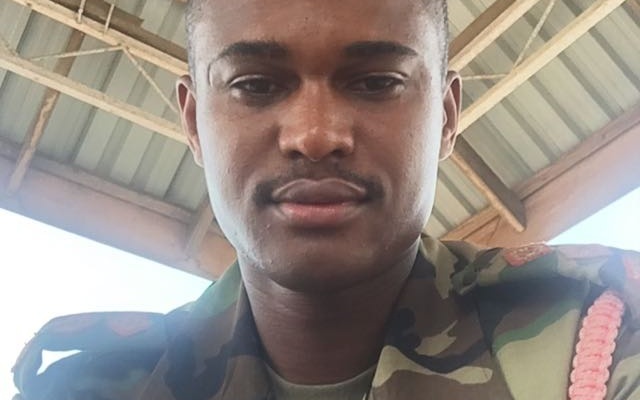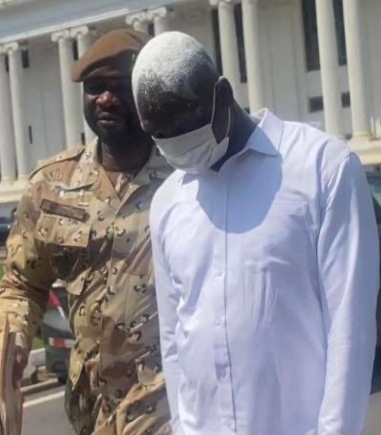“We are sad about the death of Major Maxwell Mahama but we have sworn a judicial oaths and justice demands more than public sentiments,” Justice Dr Ernest Owusu-Dapaah said when he read his elaborate decision which agreed with Justice Christopher Archer’s main judgment that quashed the conviction and life imprisonment sentence of William Baah, who was jailed in January last year for abetting the murder of the young military man.
He added that abetment required intentional association and merely being associated with an offence was not sufficient for the assemblyman to be found guilty of abetment.
Justice Owusu-Dapaah further stated that there was no direct or any evidence from the trial court that Baah gave any instruction for people who went to the crime scene to arm themselves or any meeting to that effect.
The Assembly Member at Denkyira Obuasi in the Central Region, Baah was sentenced to life imprisonment on the charge of abetting the murder of Major Maxwell Adam Mahama.
He was convicted along 11 others by the Court presided over by Justice Mariama Owusu, then Justice of the Supreme Court, sitting with additional responsibility as a High Court Judge.

Misdirection
The three-member panel of the second highest court of the land held that the trial judge, Justice Owusu misdirected the jury to arrive at a guilty verdict for the assemblyman.
“The midsection of the high court judge was grave.
The jury would not have returned a verdict of guilt if they had been properly directed,” Justice Christopher Archer who read the lead judgment said.
Specifically, the court held that the court erred when it relied on the cautioned statements of two of the accused persons incriminating the assemblyman.
The court was of the view that the caution statement of an accused person which implicated another accused person should be made in the presence of the one the statement implicates adding that the caution statement could only be used against the accused person making the statement and not a co-accused.
“The Judge was bound to disregard the incriminating statements when directing the jury,” the court said.
In addition to this, the court held that the statement of two of the accused persons, which the court relied on were full of inconsistencies and suspicions.
The other member of the panel was Justice David Boafo and George Benard Shaw represented the appellant.
Trial court facts
The facts presented by the prosecution were that Maj. Mahama was the commander of a military detachment stationed at Diaso in the Upper Denkyira West District in the Central Region, to check illegal mining activities.
At 8 a.m. on May 29, 2017, Maj. Mahama, wearing civilian clothes but with his sidearm, left his detachment base for a 20-kilometre jog.
At 9:25 a.m., the military officer got to the outskirts of Denkyira Obuasi, where some women were selling foodstuffs by the roadside.
He stopped to interact with the women and even bought some snails, which he left in their custody to be taken up on his return from jogging.
While he was taking out money from his pocket to pay for the snails, the woman from whom he had bought the snails and a few others saw his sidearm tucked to his waist.
Soon after he left, one of the women telephoned the assembly member for Denkyira Obuasi to report what they had seen.
“Without verifying the information, the assembly member mobilised the accused persons and others, some now at large, to attack the military officer,” the prosecution averred.
It added that the mob met Maj. Mahama near the Denkyira Obuasi cemetery and, without allowing him to explain and identify himself, “attacked him with implements such as clubs, cement blocks and machetes, killed him and burnt a portion of his body”.

